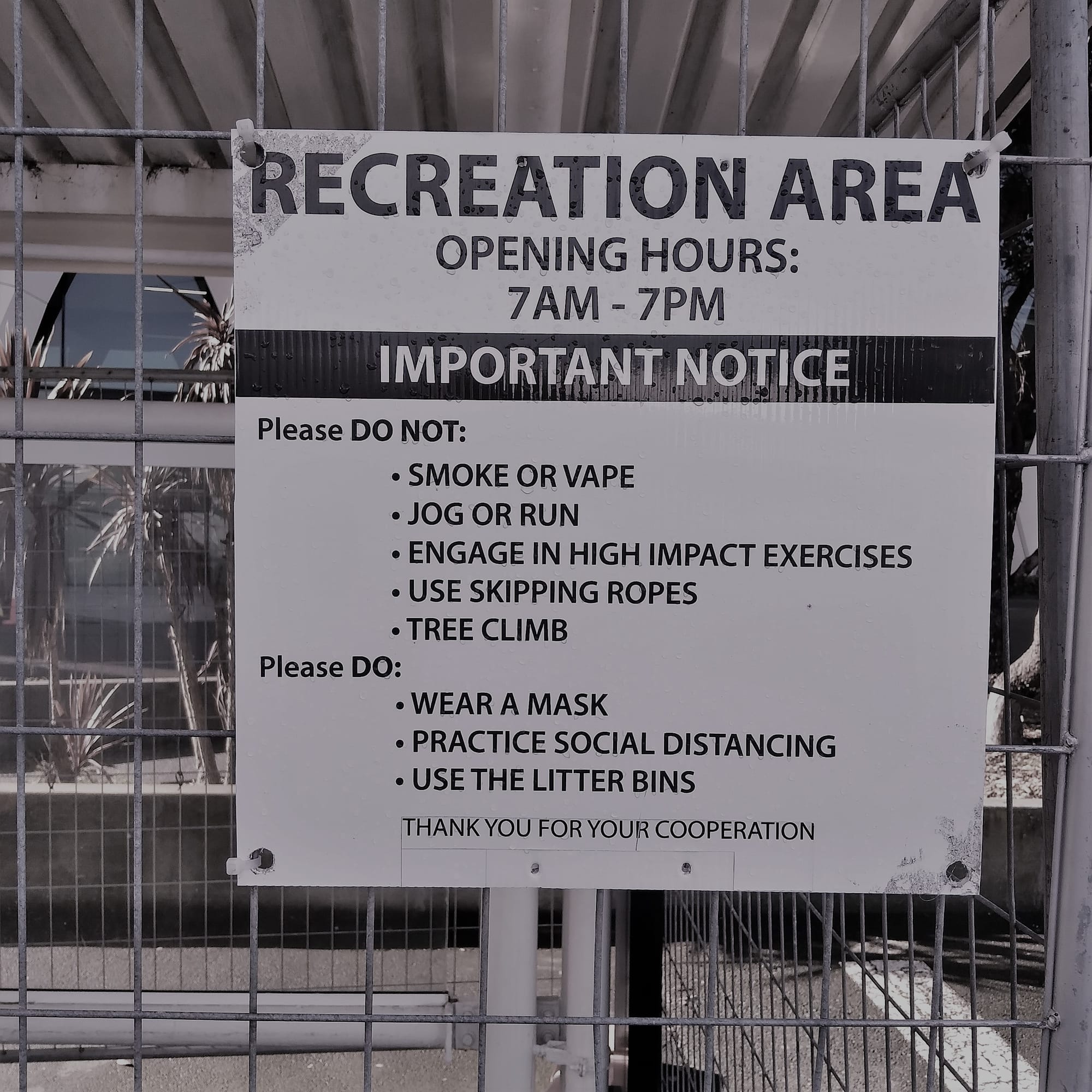Table of Contents
Al Johnson
The $7 million MIQ system that’s quietly gone un-noticed
A week ago Hipkins ruefully looked back after losing the election and observed “…it’s clear from the end of 2021, we saw our support numbers drop quite significantly…”
MIQ was a shocking imposition on the rights of citizens and to the economy so if he’s in any doubt why the numbers started to fall at the end of 2021, MIQ as part of Labour’s litany of overly cautious, strung-out Covid restrictions has to be one of the many many reasons.
The Ministry of Business, Innovation and Employment (MBIE) recently released a tranche of documents on their website up to when they transferred their work on the national isolation and quarantine system to Te Whatu Ora/Health NZ after June 2023.
These documents show how Hipkins seems blind to MIQ’s impact. In fact, in late 2021 (and I mean late: this was November 2021), he was instructing MBIE to develop a business case to secure a “purposefully designed MIQ network and core operating model”. MBIE went to work on long-term government-run MIQ options, clearly assuming back then that some travellers would be required to go through MIQ for another 1 to 2 years, and MIQ as a possibility would be needed indefinitely.

This MIQ network would consist of a minimum of 1000 rooms as part of a “stable, flexible and enduring quarantine response“ concentrating on hubs around airport locations and constructing modular units at existing MIQ hotel facilities. Hipkins included personal comments on his briefings back to MBIE, such as considering a specifically trained, perhaps “micro-credentialed” workforce in place to staff the facilities. He requested a meeting to discuss his ideas.
Yet at the same time as this work, Hipkins was involved in ending the elimination strategy and was aware that community transmission of Covid was high and MIQ no longer served a clear purpose.
A Ministry of Health memo, sent to Hipkins from then Director-General of Health Ashley Bloomfield in November 2021, said MIQ as a default requirement for international arrivals was no longer justified on a public health basis as “…the risk posed by international arrivals transmitting Covid-19 is no longer higher than the domestic transmission risk of Covid-19.”
Meanwhile the business case went ahead and in March 2022 it went through a review coordinated by Treasury, who rated the project a flashing red: “successful delivery appears to be unachievable”.
Despite the border requirement for MIQ largely ending in March 2022, this didn’t stop the work. The initial business case was canned in favour of starting another, more measured attempt at a business case.
Hipkins appears to have grown impatient: he wanted the hotels that had been used for MIQ to be bought by the government to continue their use as MIQ facilities. Here’s his comment on an April 2022 briefing to him from MBIE discussing how they would proceed with the new business case:

The two paragraphs Hipkins referenced were MBIE confirming that his desire to buy hotels used as MIQ facilities was out of scope. Another briefing to Hipkins the same month assumed that border closures would be a key lever in the face of another threat and MIQ would be a necessary part of any future response.
It bears remembering that advice to then Prime Minister Jacinda Ardern in March 2020 stated that any merit in closing the border hinged on whether the health system could be improved by the time it reopened. Border closures were not recommended by the World Health Organisation (WHO) as they would only delay rather than prevent an epidemic and cause hardship and high economic cost along the way.
And just to double-down – again at the time this was being worked on within government – the Grounded Kiwis court case had successfully challenged the MIQ allocation system in court.
Although the border requirement had ended, MIQ facilities were still available; as late as June 2022 some border and community cases were still being housed in MIQ. MBIE even maintained contracts to the end of June 2023 with 7 MIQ hotel facilities to provide 1250 rooms if required.
Yet the exact nature of how and when to re-enact any MIQ requirements – and the social licence to even use them – is not addressed in these documents.
The 2nd business case that MBIE was tasked with was to explore 3 options:

The readiness plan that is mentioned in option 1 (and appears to be in place now) has contractual arrangements with former MIQ hotels in Auckland and Christchurch, and key suppliers like security, and has the ability to stand up 1000 to 6000 rooms within 8 weeks if needed. The plan also involves, with no detail, supporting people to isolate in their homes with technology options to monitor them for compliance.

MBIE delivered their 2nd business case in September 2022 and the business case scored option 2, which consisted of the above readiness plan from option 1 and a contracted rag-tag portfolio of suppliers, as the preferred option.
By this time, September 2022, the mantle of the Covid-19 Response Minister had passed from Hipkins to Ayesha Verrall, who eagerly took over where Hipkins left off.
MBIE had also reflected within the business case public health advice from the Strategic COVID-19 Public Health Advisory Group. This group was chaired by vaccine advocate and personal friend to Verrall, Nikki Turner. The advice Turner’s group provided was a direct consequence of Verrall meeting with them and asking for their comment in November 2022.
The group didn’t just restrict themselves to focus on border arrivals as a reason for MIQ but also domestically, particularly for measles. The group’s overall recommendation was: “We consider that an approach that sits on the continuum between options two and three, would prepare New Zealand well for a future infectious disease threat.”
Verrall then pushed MBIE to focus on option 3 – creating purpose-built MIQ facilities; however, both MBIE and the Ministry of Health and Te Whatu Ora/Health NZ and Treasury did not recommend option 3. Incidentally, option 3 was estimated by MBIE to cost $154 million to $1.17 billion to build facilities and $20.1 million to $32.1 million spent per year to just keep them at the ready.
MBIE even told Verrall to go and do more ministerial consultation on her preference and suggested Verrall discuss and understand what happens if they build facilities and they sit unused.
This advice from government officials seemed to be a handbrake on Verrall’s authoritarian, spendthrift impulses, as in December 2022 the Social Wellbeing Committee approved a Cabinet paper that recommended option 2 and agreed to allocate funds of $3.7 million per year to it.
The Cabinet paper rationale for this work still focused on border arrivals and for any infectious disease again such as measles, but also added to that public health advice by including that this MIQ system could be used for “housing people following a natural disaster or mass arrivals”.
The Cabinet paper costed activating these arrangements and using these rooms at between $600m to $800m.
Although MBIE expected media interest and prepared reactive lines for Verrall as the new Health Minister from February 2023, I only found a lone 2022 article on the readiness plan.
On the 1st of July 2023 Te Whatu Ora/Health NZ proudly announced that they had taken over from MBIE to oversee this long-term MIQ capability.
The costs of MIQ for dubious benefit
MIQ had significant costs from a societal and economic perspective. Putting aside the fairness of its use that was successfully challenged in court, MIQ was kept too long, it stopped the healthy functioning of society and the economy and it had limited use despite what self-congratulatory government papers say.
Of the 189,315 people who went through MIQ to the 13th of November 2021, when the requirement was for a total of 14 days, MIQ only captured 1,401 border cases of Covid (less than 1% of people who went through to that point).
Were the billions spent on MIQ up to that point and the further money spent on it worthwhile, or should this effort have been better focussed on supporting the health system, as suggested to Ardern in March 2020?
This fortress mentality of narrow-minded politicians has caused incredible amounts of money to be spent on a system that may not be needed, hasn’t been investigated or reflected on by the public it seeks to allegedly serve, and, more importantly, hasn’t considered whether the social licence exists to set up MIQ ever again. It’s not surprising Labour’s numbers fell. In fact, it’s surprising they didn’t fall further.









